In June 2020, the Norwegian Refugee Council (NRC) declared, for the second year in a row, the crisis in the two Cameroon English-speaking regions (North-West and South-West) as the most neglected crisis on the planet (NRC, 2020). Indeed, the situation in the anglophone areas continues to degenerate as tensions between the government forces and the separatists are on the rise. According to Human Rights Watch, over the past three years, violence in the area has claimed an estimated 3,000 lives and displaced over 730,000 civilians (HRW, 2020). Despite the serious state of instability in the region – which began in October 2017 after the declaration of independence by Ambazonian secessionists – the global media perpetuates the silence, and the international community’s plan of intervention appears fragmentary and unstructured.
This article sheds light on the ongoing crisis in Anglophone Cameroon, unpacking and exposing key dynamics that underlie the current state of affairs. The aim is to contribute to the current debate in an informative and analytical manner and bring attention to a topic that has gone unrecognised by most. It will show how historical, social, and political aspects intertwined and contributed to the development of the current situation characterized by a high level of complexity due to the clash of conflicting interests; linked on one hand to the concept of self-determination of peoples and on the other to the idea of a Cameroonian unitary state. Finally, we will attempt to provide a series of possible actions that can be undertaken to favour a more peaceful and rightful resolution to the conflict.
A Long-Standing Power Struggle
During a conference at the Festival Della Letteratura di Mantova in 2020, the Cameroonian writer Patrice Nganang stated that Cameroon is “still fighting colonialism, even though Cameroonians themself don’t know this.” Truly, the weight that colonial history and the different legislative, governmental, and educational structures that England and France imposed on their respective territories was – and still is – one of the main reasons for the hostility between the parties at play in the current humanitarian and political crisis. The British Empire opted for an indirect rule “allowing native chiefs to perform most executive and judicial functions” although subjected to the common law (Lee and Schultz, 2012). This was a standard practice in most of the English colonies, such as in neighbouring Nigeria. On the contrary, France opted for a more coercive and direct rule – regulated by the civil law – and characterized by the policy of assimilation. In this case, “assimilation” is meant as the ability given to western educated Africans to be granted all the legal rights of French citizenship (Ibid). It should be noted how in the first case, a certain degree of autonomy was given to pre-existing forms of government, while in the second case the aim was to create a new elite of rulers and politicians educated in accordance with French values. For a long period after the independence, the areas maintained the two inherited and distinctive educational and juridical systems. As will be shown later, these aspects still play a significant role in the current Anglophone crisis as the debates revolve around the possibility for the English-speaking provinces to retain the political and legislative structures that originated during the colonial period and that define the very same identity of Southern Cameroonian people. Furthermore, the semi-autonomy that was conferred to these regions by the Anglo-Saxons inevitably clash with the centralised and unitary state envisioned by the Francophone government.
After a decade of federalism, declared after a referendum in 1961 which had the purpose of joining the Federal state of British Southern Cameroon and La République du Cameroun, the relation between the Anglophone and the Francophone Cameroons drastically worsened in 1972 and have experienced tensions since. The then President Amadou Ahidjo abandoned federalism and transformed the country into a unitary state known as the United Republic of Cameroon, merging the ex-British-administrated Southern Cameroon with the ex-French colony (Fru Awasom, 2020). This initiated protests by the Anglophone counterpart, who saw the manoeuvre as an attempt to further centralise the power in favour of the Francophone. After decades of hostilities and protests by the English-speaking citizens, who accused the Government of economic and social marginalization, the situation ultimately deteriorated between 2016 and 2017. Later known as the “Coffin Revolution”, it began on 6 October 2016 following a Cameroon Anglophone Civil Society Consortium (CACSC) sit-down strike, led by Barrister Agbor Balla, Fontem Neba, and Tassang Wilfred (Ibid.). The organisation, composed mostly of teachers’ and lawyers’ trade unions, protested over the use of French in schools and courtrooms, and the appointment of Francophone judges in Bamenda – the capital of the North West region. The immediate heavy repression put in place by the Cameroonian Government of what started as a peaceful protest, and the imprisonment of more than one hundred activists, gave rise to the violence. It soon became clear that the government of Paul Biya had no interest in finding an agreement with the militants of the later-known Ambazonia.
Since the early stages of the crisis, the stance of Yaoundé towards the demands made by the Anglophones has been exceptionally harsh. The government has denied the accusation of political, economic, and social marginalization of the English-speaking part of the population multiple times. In contrast, the insurgents were blamed for inciting political violence and terrorism (Okereke, 2018). This negationist approach characterized by the refusal to acknowledge the existence of an Anglophone problem – failed to address the socio-political inequality of the two Western regions and promoted the simplified idea that the difficulties encountered Anglophones citizens were merely the same as the rest of the country (Kemedjio, 2020). The rhetoric still adopted by the Rassemblement Démocratique du Peuple Camerounais (RDPC), ruling party from 1985, is the sheer denial of the alleged marginalization of the Anglophones in the political and social arena, and the criminalization of the Ambazonian movement as a mere deployment of brutal violence with no link with the supposed subordination due to the different Anglo-Saxon heritage of those areas (Eban Ebai, 2009). Nonetheless, many academics, activists, and civil society organizations strongly deplored the claims that vilified the problem and reported enduring disparagement and under-representation in the administrative and strategic positions (See Fonchingong, 2011; Konings and Nyamnjoh, 1997).
This criminalisation narrative of the Ambazonian leaders was and still is used as a weapon to legitimise the violent response from police and gendarmerie, exemplified by the deployment of the Rapid Intervention Battalion (BIR) in the areas with greatest unrest. As one of the latest reports from the International Crisis Group (2020) states, “[…] the government carried out a brutal counter-insurgency campaign while blocking and delaying dialogue initiatives.” However, the vicious repression and intimidations perpetrated by the military and the ongoing media censorship had no effect other than fomenting the aggressive reaction of militant groups. Furthermore, the numerous convictions of the main separatist leaders, such as Julius Ayuk Tabe (leading figure of the movement for the independence of Ambazonia), not only created a leadership vacuum – later filled by the diaspora – but further radicalized the movement. Human rights violations are now perpetrated by both sides, leading to episodes of civil unrest and protests recalling the unceasing brutality (HRW, 2020b). After growing international pressure President Biya announced the opening of a Grand National Dialogue on the 30th of September 2019. Between September 30 and October 4, 333 anglophone detainees accused of involvement with the insurgency were released. Nevertheless, this political event – welcomed at first as the beginning of peaceful negotiations between the forces – had little effect on the peacebuilding process. In fact, the tensions between the Cameroonian military and the secessionists’ fighters have escalated since the beginning of 2020.
The situation has further exacerbated on 8 September 2020, when the Cameroonian army launched a special security operation in Bamenda (Bamenda Clean), the epicentre of the emergency. The military representatives declared that the aim of the operation was to cleanse the city of separatist rebels and restore order in the area. However, many public actors and international organisations have raised concerns about the negative impacts that this manoeuvre could have on civilians. Recently, several civil society organizations have highlighted the inconsistency of the political actions that followed the 2019 dialogue, prompting the government toward new peaceful solutions (Nfah-Abbeny and Doho, 2020). Yet the clashes of the past few weeks have made evident that neither the government nor the separatists are planning to revise their violent approach to the crisis. The situation is now at a standstill, where future outcomes are highly unpredictable and balances unstable. Some areas, such as Buea town and its surrounding areas are currently considered “safe areas” under the control of government troops, while others, such as that of Bamenda, are affected by continuous clashes, and see the presence of numerous separatist units. Due to the inability of both sides to find a common ground, and the persistence of the very same fractures within the Ambazonia independence movement, the situation is becoming more and more polarised.
The Role of the International Community in the Conflict
The Anglophone crisis has been largely ignored by the international community and treated as a simple domestic crisis (Anyefru, 2010). This approach has strongly contributed to the gradual worsening of the security situation throughout the country, also affecting the stability in the whole of Central Africa. The role played so far by global political actors in the humanitarian and political Cameroonian crisis seem to be divided along two main lines. On one hand, the largest majority of the most influential members of the African Union had allegedly opposed efforts to bring the anglophone conflict up to discussion. Countries such as South Africa, Ethiopia, and Nigeria have so far ostracized any attempt made by Anglophone representatives to draw attention to the problem. With none of the members of the African Union actively showing interest in the cause, or openly supporting the Ambazonian fighters, the repressive actions put in place by the Cameroonian government against the secessionist’s requests have therefore been tacitly validated. On the other hand, the violent response implemented by President Paul Biya was heavily condemned by the United Nations (UN) and some members of the European Union. On 30 May 2018, the United Nations officially declared the situation in Southern Cameroon a humanitarian crisis and deployed peacekeeping troops. On 20 November 2018, the UN denounced the violent actions carried out by both sides. In March 2019, the UN accused the Cameroonian government of human rights violations, passing a motion the following month which condemned the abuses and killing of civilians by the national army, and started an investigation into possible war crimes committed by the two parties. Some key Western actors such as the United Kingdom, France, the United States and Switzerland have shared their position since the beginning of the crisis. France openly embraced the alleged reconciliation efforts made by the Cameroonian government, and Switzerland has been the major promoter of the 2019 Grand National Dialogue. These nations have pushed towards a peaceful resolution of the crisis, and the dialogue between the government and the Anglophone leaders.
Further Challenges to National Stability
The volatile situation in the Anglophone regions is further aggravated by an even more unstable political landscape. Due to the COVID-19 pandemic, during which the country is recording the highest number of cases in the entire Central Africa region (WHO, 2021), the long-lasting ruptures within the Cameroonian political system became more and more accentuated. The health emergency has added additional economic pressure on the population, adding to the already widespread feelings of discontent towards the ruling party. The standoff between Paul Biya and the main opposition leader, Maurice Kamto, continues. The latter demands the resignation of the current President, while protests organised by the Mouvement pour la Renaissance du Cameroun (MRC) have already begun in the streets of Douala, Yaoundé, Bafang, and Baham. Once again, the response of the government forces has been defined by heavy repression, which resulted in the killing of a demonstrator in Douala, and the harming and arrest of several others, including journalists, on 22 September 2020. The anti-government protests are expected to escalate on the eve of the regional polls on 6 December 2020, fearing for possible replication of the violent clashes who stormed the country’s major urban areas in 2008 (Amin, 2013). The political confrontation has recently taken a worrying ethnic turn (Crisis Group, 2020). The deployment of a “tribal politics” and the reference to ethnic identity and belonging as a means of gaining a following is cause for great concern in a country already fragmented into different linguistic – English and French – and religious – the Muslim North and Christian South – lines. Leveraging and exploiting the ethnic feelings risks further deepen the existing fractures.
Additionally, in the Far North region, the presence of Islamist terrorist groups perpetuates the state of insecurity. According to the International Crisis Group (2019), to this date, at least 2,000 people have lost their lives because of the ongoing raids, while 250,000 are currently displaced. This has forced the population to mobilise, organising groups of vigilantes in an attempt to defend themselves from jihadists. The joined efforts put in place by the military forces of the states of the Lake Chad basin have proven to be insufficient. In recent months, Nigeria, Cameroon, Chad, and Niger have carried out several military campaigns to try and repel the jihadist advance, aiming to the disarmament and the social reintegration of the ex-insurgents. Still, the whole area continues to be the scene of violent outbreaks, with a gradual increase in deadly attacks in the last six months. On 1 August 2020, nineteen civilians were killed by a grenade attack on a displaced camp in Nguetchewe village by alleged Islamist terrorists. On 14 September 2020, a group of suspected Boko Haram terrorists killed five civilians and injured several others in the remote localities of Kouyape and Talakachi of Cameroon’s Far North region. Dramatically, suicide bomb attacks – with reported use of child soldiers – are rising as well. Boko Haram groups seem to now be targeting new areas, with a considerable expansion towards the South. These latest developments suggest a new violent wave that seemed to have slightly dozed off. Perhaps, in the hope of taking advantage of the current chaotic state in the country.
A Way Forward
The aforementioned situation highlights an increasing security risk and political uncertainty in the nation. As a strategic trade hub, Cameroon plays a dominant role in the region and within the Economic and Monetary Community of Central Africa (CEMAC), holding almost 40% of its money supply (African Development Bank, 2020). Still, the major challenges described above have a significant impact on the economic and overall development of the country. Institutions and policymakers will have to demonstrate a strong ability to juggle local and international interests to reach a resolution, and find multilateral solutions to the country’s unfolding crisis. Recently, the situation seems to have reached a breaking point. The implementation of a collaborative and externally mediated intervention appears necessary to avoid further humanitarian disasters, and ensuring a more cooperative approach to respond to the earnest demands of autonomy and self-determination of the North-West and South-West regions.
It is possible to identify three major obstacles to the resolution of the Anglophone conflict. Primarily the demonstrable incapacity of President Paul Biya and his entourage to handle the issue. As mentioned previously, the hard-line put in place by the government amplified rather than contained the grievances, transforming the initial political rupture into a humanitarian catastrophe. Southern Cameroons should be immediately demilitarised to ease the work of NGOs, making the area more accessible to aid provisions and humanitarian support. Secondly, the weakness with which the international community has been involved in the problem has further left opportunity for the repression carried out by the Cameroonian authority. The United Nations Security Council (UNSC) should order a ceasefire and call for multilateral sanctions on both sides, including the Cameroon Government officials and the secessionists who commit or facilitate the violation of international rights of Southern Cameroonians. Efforts should be made by the Office of the United Nations High Commissioner for Human Rights (OHCHR) to support an investigation into the violations of international rights toward Anglophones and document the atrocities. Foremost, it is key to promote the information and the work of reporting by international media to raise awareness and advocate for the end of the conflict (for an in-depth analysis on the role played by social media and fake news in the crisis see Nounkeu, 2020; Ngange & Mokondo, 2019). International facilitation and mediation are crucial in conflict resolution, particularly where a self-determined internal resolution has proved unachievable after multiple attempts. Indeed, a major hurdle to peacebuilding in Cameroon has been the inability of parties to find a common ground. Finally, a significant obstacle to peace is the fracture within the very same Ambazonian movement. Although, the will to obtain independence from La Republique du Cameroun, and the desire to achieve a higher level of self-determination, can be considered a unilateral demand from all anglophone representatives. The ways and the means to achieve this freedom are not clearly defined and shared by all Southern Cameroonian activists. Several actors are involved in the actions – including armed militias, political leader, statesmen, and activists from Cameroon and the diaspora – who all clearly have a different approach on how to tackle the crisis and face the resistance posed by the government. All the members of the movement should actively collaborate and harmonise their agenda to effectively communicate their demands and attract the attention of the international community.
Recently, a step has been taken to improve coordination and make the Ambazonian movement more structured and intelligible. The Coalition for Dialogue and Negotiations, a civil society organisation of Anglophone Cameroonians in the diaspora created with the aim to end the crisis in Cameroon and ensure a durable peace, has held an international e-conference to discuss the recent escalation of the socio-political catastrophe in the North-West and South-West regions on 30 October 2020 (Coalition for Dialogue and Negotiation, 2020). This followed the recognition of the failure of the Grand National Dialogue to solve the crisis and stop the killing and abuses of civilians. They believe that a “broad-based dialogue and negotiations between the armed restorationist (separatists) and the Cameroon government” (Ibid.) is the only way to resolve the conflict in Cameroon. The conference brought together personalities from all Cameroon public and private spheres including civil society leaders, separatist leaders, political leaders, activists, religious and traditional leaders, legislators, entrepreneurs, members of youth associations, academics, and media representatives. The goals were to engage the largest section of experts and activists to agree on a pathway towards a permanent resolution to the armed conflict and develop a detailed framework for robust post-conflict reconstruction. Perhaps, for the first time since the beginning of the conflict, English-speaking Cameroonians and supporters of the Ambazonian cause from all over the world were brought together to discuss their demands and a way forward.
Conclusion
Re-engaging in an inclusive dialogue, through international bodies and neutral stakeholders, remains a fundamental step to solve the Anglophone conflict. The design and implementation of a plan that allows an orderly and peaceful compromise between the parties continues to be the most probable solution. In addition, as long as external political and diplomatic organisations, such as the African Union, the Economic Community of Central African States (ECCAS), and the UN fail to truly commit to the promotion of a peaceful resolution, favouring mediation and negotiations, the situation is likely to remain in a state of stalemate. Over time, this will further polarise and radicalise respective positions. At this stage, the conflict has surpassed the initial demands of more political representation and legislative autonomy of the first wave of the protests led by teachers and lawyers in 2016. The level of entanglement and complexity of the current status quo demands a compromising effort from both sides. To bring suitable and successful solutions to the current crisis in Cameroon surely represents a challenge, however, the development of an effective multilateral negotiation and an appropriate transnational intervention can wait no longer.
Sources
African Development Bank (2020), “African Economic Outlook 2020: Developing Africa’s Workforce for the Future”, [online] Available on: file:///C:/Users/Roberta/Downloads/afdb20-01_aeo_main_english_complete_0213.pdf
Amin J. A. (2013) “Cameroonian Youths and the Protest of February 2008”, Cahiers d’ Études Africaines, Vol. 53, Cahier 211, pp. 677-697.
Anyefru E. (2010) “Paradoxes of Internationalization of the Anglophone problem in Cameroon”, Journal of Contemporary African Studies, 28:1, 85-101
Coalition for Dialogue and Negotiations (2020), “International Conference on the Armed Conflict in Southern Cameroons”, [online] Available at: https://aic.coalitionfdn.org/
Crisis Group (2019), “Cameroon Country Profile”, [online] Available at: https://www.crisisgroup.org/africa/central-africa/cameroon
Crisis Group (2020), Africa Report N°295, “Easing Cameroon’s Ethno-political Tensions, On and Offline”, [online] Available at: https://www.ecoi.net/en/file/local/2042027/295-easing-cameroons-ethno-political-tensions.pdf
Eban Ebai S. (2009), “The right to self-determination and the anglophone Cameroon situation”, The International Journal of Human Rights, 13:5, 631-653
Fonchingong, T. (2013), “The quest for autonomy: The case of Anglophone Cameroon”, African Journal of Political Science and International Relations, 7(5), 224–236
Fru Awasom N. (2020): “The anglophone problem in Cameroon yesterday and today in search of a definition”, Journal of the African Literature Association, 2-28
Home Office (2020a), “Country Policy and Information Note, Cameroon: Anglophones”, Version 1.0, March 2020, [online] Available at: https://www.gov.uk/government/publications/cameroon-country-policy-and-information-notes
Home Office (2020b), “Country Policy and Information Note Cameroon: North-West/South-West crisis”, Version 2.0, December 2020, [online] Available at: https://www.gov.uk/government/publications/cameroon-country-policy-and-information-notes
Human Rights Watch (HRW) (2020), “Cameroon: Make Massacre Investigation Public”, [online] Available at: https://www.hrw.org/news/2020/04/16/cameroon-make-massacre-investigation-public
Human Rights Watch (HRW) (2021) “Cameroon: Civilians Killed in Anglophone Regions”, [online] Available at: https://www.hrw.org/news/2020/07/27/cameroon-civilians-killed-anglophone-regions#
Kemedjio C. (2020), “The Anglophone question: between a “regime made disaster” and the ethnic politics of a fragmented nation”, Journal of the African Literature Association
Konings P. (2002), “University Students’ Revolt, Ethnic Militia, and Violence during Political Liberalization in Cameroon”, African Studies Review, Vol. 45, No. 2, Special Issue: African Universities in Crisis and the Promotion of a Democratic Culture, pp. 179- 204.
Konings P. I. E. T., & Nyamnjoh F. R. A. N. C. I. S. B. (1997), “The Anglophone Problem in Cameroon”, The Journal of Modern African Studies, 35(2), 207–229
Lee, A. & Schultz K. A. (2012). Comparing British and French Colonial Legacies: A Discontinuity Analysis of Cameroon. Quarterly Journal of Political Science, 7(4), 365–410
Nfah-Abbenyi J. M. & Doho G (2020), “Fragmented Nation or the Anglophone-Francophone Problem in Cameroon”, Journal of the African Literature Association, 14:2, 171-172
Ngange, K. L., & Mokondo, M. S. (2019), “Understanding Social Media’s Role in Propagating Falsehood in Conflict Situations: Case of the Cameroon Anglophone Crisis. Studies in Media and Communication”, 7(2), 55
Norwegian Refugee Council (NRC) (2020), “The World’s Most Neglected Displacement Crises in 2019”, [online] Available at: https://www.nrc.no/shorthand/fr/the-worlds-most-neglected-displacement-crises-in-2019/index.html
Nounkeu C. T. (2020), “Facebook and Fake News in the “Anglophone Crisis” in Cameroon”, African Journalism Studies, 41:3, 20-35
Okereke N. E. (2018), “Analysing Cameroon’s Anglophone Crisis”, Counter Terrorist Trends and Analyses, Vol. 10, No. 3 (March 2018), pp. 8-12.
World Health Organization (WHO) (2021), “Cameroon: WHO Coronavirus Disease (COVID-19) Dashboard”, [Online] Available at: https://covid19.who.int/region/afro/country/cm

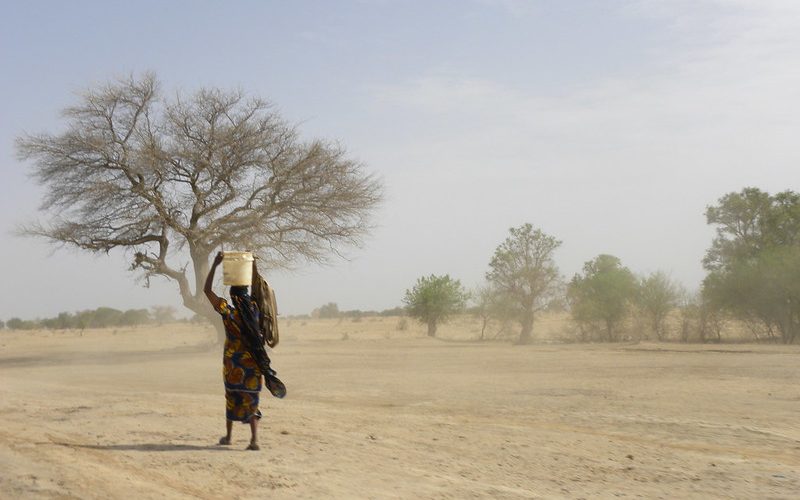
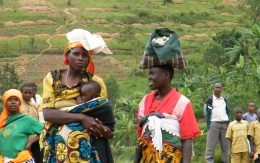
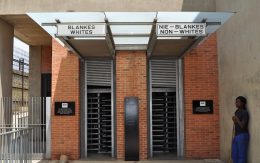
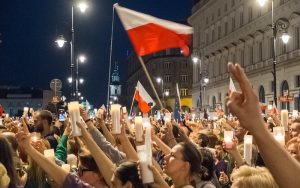
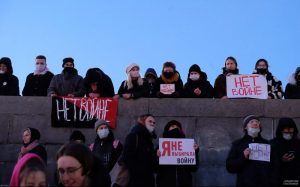
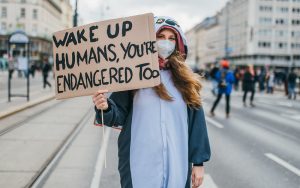
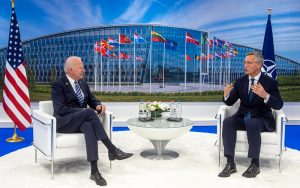

Be First to Comment